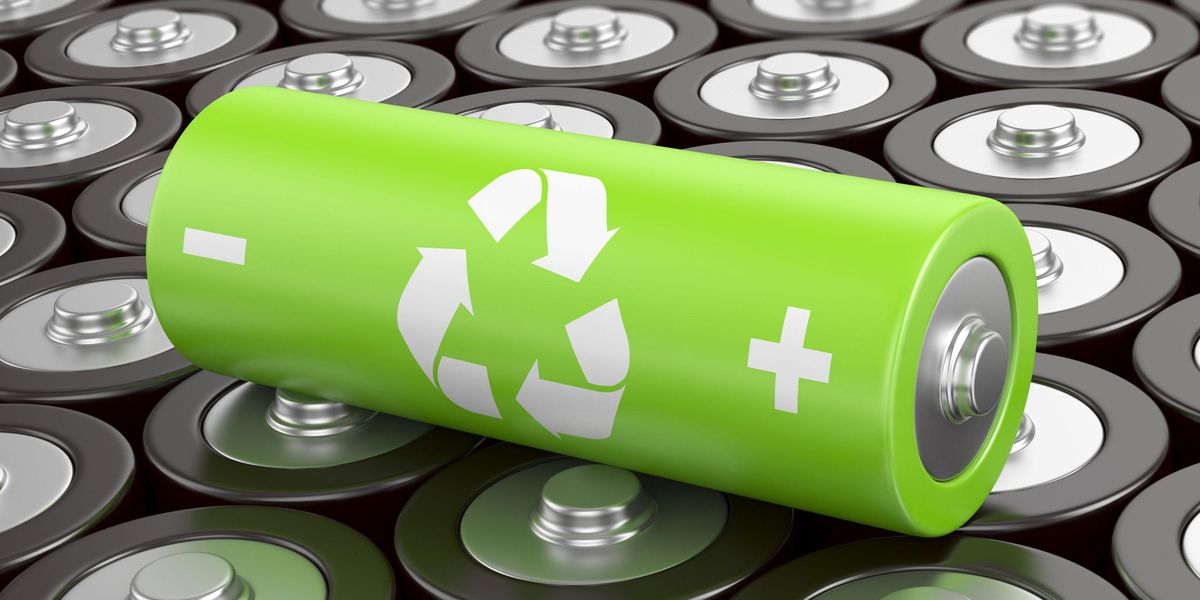KeroZen
Chronic vapaholic



 spectrum.ieee.org
spectrum.ieee.org
Study: Recycled Lithium Batteries as Good as Newly Mined
Cathodes made with novel direct-recycling beat commercial materials

Study: Recycled Lithium Batteries as Good as Newly Mined
Cathodes made with novel direct-recycling beat commercial materialsspectrum.ieee.org
I've dealt with batteries and electronics for a lot of years. We take batteries for granted, but the truth is that any kind of battery can be dangerous.This is a controlled short that shows what can happen when an 18650 shorts out. I'm not suggesting this WILL happen, just illustrating that these batteries pack a lot of power, and you want to take precautions to insure something like this doesn't happen. The first and most important step is to be certain your battery cells are legit (i.e., OEM with quality control) and that you use and charge correctly. Not trying to scare anyone. It's just important to know what can happen with faulty batteries and/or incorrect usage.
Edit: Hopefully I am not breaking a rule by specifically talking about battery safety here. Would that fall into the "no discussion of internal elements"?
I keep buying batteries from Arizer at a premium price in case anything goes wrong with my Air II. They always ask if you've bought batteries elsewhere after which they will not work on my vape. I'm sort of over it. Is there a specific brand of battery that y'all trust that I could buy for the Air II instead? Much obliged!I've dealt with batteries and electronics for a lot of years. We take batteries for granted, but the truth is that any kind of battery can be dangerous.
Despite being dangerous, when handled properly, and used as designed, they are quite safe to use. Whether it is an 18650, or other, simply use the battery as designed.
As for handling batteries:
- Either battery caps, or proper boxes; don't throw them in a drawer
- Batteries are charged on quality, trusted charger
- When batteries no longer hold a charge, they need to be disposed of correctly
- Here in Edmonton, there a number of ECO disposal stations; Google has the details
- Always dispose as per local guidelines
- Volts means little. Even a small battery is dangerous; respect them all the same
Well that’s illegal and they can’t void warranty for use of a non oem battery.I keep buying batteries from Arizer at a premium price in case anything goes wrong with my Air II. They always ask if you've bought batteries elsewhere after which they will not work on my vape.


My Opus charger shit the bed and I just got this eight bay charger which has a big warning to choose the right voltage. It defaults to 4.2V and I'm wondering if that's safe/correct? I adjusted the rate from 1A to .5A because my old charger was set slow and I've read it's good for the cells to charge them slowly.
Thanks in advance!


Exactly the info I was looking for, thanks!4.2 volts is the STANDARD charge rate for most 18650 lithium batteries, higher voltage choices on some advanced chargers are for oddball batteries, that are far less common. The NOMINAL voltage you often see listed for 18650 batteries is 3.7-3.8 volts. You can safely charge 18650 batteries at up to 2-3 amps, depending on the brand and type, this upper limit is usually listed in the battery specification sheets. If you are in a hurry, a 1 amp charge rate is fine.
Your charger lists:
- Output – Ni-MH 1.5V, LiFePO4 3.6V, Li-ion 4.2V / 4.3V / 4.35V
Exactly the info I was looking for, thanks!
Maybe I'll treat myself to 1A charging too. Having eight bays already cuts my charge time in half but if I'm not extending the life of the cell much I don't mind reverting to my customary impatience
It can do 1A in all eight at once and doesn't use a USB charger, thanks againJust double check how many batteries you can charge at the same time at any given amp charge rate. I believe your charger is limited due to the USB wall charger. This should be indicated in the manual.
@bossman , those 0.5 A charging rates are a left over from older generation 18650's for flashlights and laptops with a 5 A or less discharge rate. The high capacity cells we use in vapes can easily handle a 2 or even 4 A charge rate (not that I would charge at 4 A on a regular basis). 1 A is a slow charge for those types of cells.It can do 1A in all eight at once and doesn't use a USB charger, thanks again
Speaking of flashlights. I’m thinking about getting a flashlight that can charge 18650 batteries.
Has anyone here done that? I’m wondering if it’s safer to get an external unit.
Any flashlight recommendations? I’m thinking Sofirn.
Using a device to charge lithium's is a legit strategy. My current monster flashlight will charge 4 lithium's with a bms that will safe charge each of the batteries safely. I actually plan on using that to charge lithium's on the go.Why would you want to charge lithium batteries in a flashlight, instead of a safe charger?
inside your bag, what's the temp? I wouldn't store these batteries under the sun, where it reallt gets up to 150F, but in your backpack and also the wind flowing you drive, as long as it doesn't reach 130F+ for long period of time, nothing will happen to it..I leave an Argo, FF2+ and Tafee Bowl in my car in 95° weather. It probably gets over 110-150° in the car but I try to crack the windows and use sun shades. How dangerous is this?
